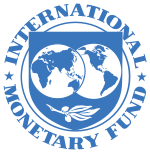August 09, 2019
The auto industry continues a precarious decline as sales in the first month of this Persian year where barely half what they were in the same month last year.
The decline is heavily a result of the re-imposition of US sanctions, which have driven most foreign firms providing parts and expertise out of the country and left the industry floundering.
The latest data for Iranian automotive companies show their output plummeted to new lows in the first month of the year.
Industries Ministry data show that Iran produced 40,602 cars and 2,021 commercial vehicles in the month, registering a 47.2 percent decline compared with a combined output of 80,794 units in the corresponding month of the year before.
An earlier report released by the Organisation Internationale des Constructeurs d’Automo-biles showed that Iran’s automotive output suffered its sharpest year-on-year decline in 2018 since the onset of the 21st Century.
Local companies produced 1.34 million cars and commercial vehicles in 2018, marking a 40 percent year-on-year decline.
The domestic industry faced a dismal year in 2012—when the previous round of sanctions began—and car output dropped 39 percent. However, 2018 was the worst year for the key industry in recent memory. Most market observers and analysts worry that 2019 could fare much worse.
Maziar Beglou, secretary of the Iran Auto Parts Manufacturers Association, told the website Asr-e Khodro, which is focused on the auto industry, that without government financial support 150,000 autoworkers and 550,000 people employed in the auto parts industry would soon be laid off.
He reminded that the Central Bank promised before Now Ruz to provide auto parts makers with 110 trillion rials ($730 million), but said it had so far paid out barely one third of that.
The US sanctions have driven European auto firms out of Iran. Chinese companies were expected to take advantage of that and boost their sales. But the Financial Tribune reported this month that the Chinese have actually downsized their operations in Iran.





















